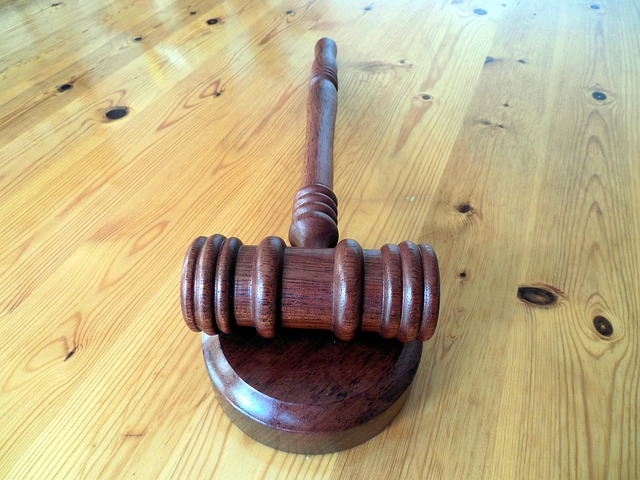Criminal law cases, particularly white-collar crimes, require specialized knowledge and can have significant societal impact. Mediation Services for Partner Conflicts emerge as a transformative alternative dispute resolution (ADR) method, facilitating open communication between defendants, prosecutors, and victims. This collaborative approach aims to resolve tensions, preserve relationships, and achieve mutually agreeable resolutions, streamlining criminal law proceedings while avoiding the financial burden and length of traditional trials.
“Unraveling the complexities of criminal law cases through mediation offers a transformative approach to dispute resolution. This comprehensive article delves into the intricate world of criminal law, highlighting the significance of understanding these unique legal scenarios. We explore the role of mediation as a powerful tool in addressing partner conflicts within this domain. By examining real-world case studies, we unveil the benefits of mediation services for criminal law matters, demonstrating its efficacy and positive impact on outcomes.”
- Understanding Criminal Law Cases: An Overview
- The Role of Mediation in Resolving Partner Conflicts
- Benefits of Mediation Services for Criminal Law Matters
- Case Studies: Successful Mediation in Criminal Law Disputes
Understanding Criminal Law Cases: An Overview

Criminal law cases are complex legal matters that involve violations of criminal statutes, where individuals or entities are accused of committing offenses against society. Understanding these cases requires a grasp of various elements, including the nature of the crime, the applicable laws, and the procedures followed by judicial systems. These cases often spark public interest and can have significant societal implications.
At the heart of many criminal law cases, especially in contemporary times, are issues surrounding white-collar and economic crimes, which involve fraud, embezzlement, and other financial misdeeds. Unlike traditional street crimes, these offenses are often subtle and require intricate investigation and legal expertise to prosecute or defend against. Across the country, jury trials play a pivotal role in determining the outcomes of such cases, as they ensure community involvement in the justice process. Furthermore, with the evolving nature of crime, mediation services for partner conflicts have gained prominence, offering alternative dispute resolution methods that can complement traditional legal proceedings and potentially streamline certain aspects of criminal law cases.
The Role of Mediation in Resolving Partner Conflicts

Mediation has emerged as a powerful tool for resolving partner conflicts outside of traditional court settings. This alternative dispute resolution method invites both parties to actively participate in negotiating their own agreements, fostering a sense of collaboration and mutual understanding. In the context of criminal law cases, where tensions can run high, mediation services for partner conflicts offer a promising avenue for de-escalation and reconciliation.
By engaging in mediation, couples facing criminal charges or those entangled in complex white collar and economic crimes can navigate their legal challenges together. Skilled mediators facilitate these discussions, ensuring that each party’s rights are protected while guiding them towards reaching amicable resolutions. This proactive approach not only mitigates the potential for prolonged litigation but also allows for a more tailored outcome, catering to the unique needs of both individuals, thereby enhancing the overall efficiency of the general criminal defense process.
Benefits of Mediation Services for Criminal Law Matters

In the realm of criminal law, where tensions often run high and emotions are raw, Mediation Services can serve as a game-changer. This alternative dispute resolution (ADR) approach offers a unique benefit in managing partner conflicts, providing a chance for all parties involved to find common ground and resolve matters outside of court. By employing mediation, defendants, prosecutors, and victims alike can navigate complex cases more effectively, ultimately aiming for winning challenging defense verdicts without the lengthy and potentially costly trials.
Mediation Services for criminal law matters facilitate open communication throughout all stages of the investigative and enforcement process. This early intervention can prevent escalating conflicts, foster understanding, and lead to mutually agreeable resolutions. Unlike traditional court proceedings, mediation encourages collaboration rather than confrontation, allowing respective businesses and individuals to preserve relationships while achieving justice.
Case Studies: Successful Mediation in Criminal Law Disputes

In many criminal law cases, mediation services have emerged as a powerful tool for resolving disputes outside of the courtroom. This alternative approach has proven successful in achieving winning challenging defense verdicts, showcasing its effectiveness in the realm of general criminal defense. By facilitating open communication between all parties involved, mediators create an environment conducive to reaching mutually agreeable solutions, which can be particularly beneficial for both defendants and their clients.
The process involves a neutral third party who guides negotiations, helping to navigate complex legal issues and emotional tensions. This strategy not only reduces the financial burden of litigation but also fosters a sense of collaboration and accountability. As a result, many cases have seen successful resolutions, demonstrating that mediation can play a pivotal role in shaping the outcome for his clients, ensuring fair and just outcomes without the lengthy and costly procedures associated with traditional trials.
In conclusion, mediation has proven to be a valuable tool in resolving criminal law cases, particularly when addressing partner conflicts. By facilitating open communication and collaborative problem-solving, Mediation Services for Partner Conflicts can significantly enhance the outcomes of criminal law matters. The success stories outlined in this article underscore the effectiveness of mediation in mitigating legal complexities, reducing costs, and fostering more positive resolutions compared to traditional litigation approaches.






